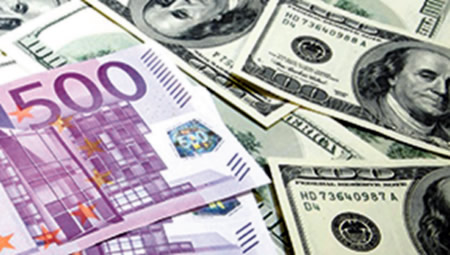* Implementation On Form M Commences August 31,2023
*Scarcity Defeats Policy, Dealers
*Fidelity Sensitizes Customers
By: John Danjuma Omachonu
Amid excruciating scarcity of foreign exchange, (FX) some banks have commenced the launching and sensitization of the Central Bank of Nigeria (CBN)’ Price Verification System (PVS) to guide requests for FX by customers using form M.
Following a successful pilot run and in furtherance of its drive to ensure transparency and accuracy in trade transactions, CBN had, middle of August announced the official Go-Live of PVS by August 31, 2023.
CBN introduced the foreign exchange (FX) price verification system (PVS) portal to enable importers access forex, through veritable and transparent means.
The Form ‘M’ is a declaration of intention to import physical goods into Nigeria.
CBN is believed to be committed to implementing new measures to stabilise the naira against the dollar, although the economy is yet to see the desired positive effects as the gap between the official and parallel markets continues to widen.
Consequently, Fidelity bank has commenced the sensitization of its customers.
In one of its messages to its customers on Tuesday, it said
“Under the new policy, all applications for Form M must include a valid price verification report generated from the price verification portal.
Price Verification System
Following a successful pilot run and in furtherance of its drive to ensure transparency and accuracy in trade transactions, the Central Bank of Nigeria has announced the official Go-Live of the Price Verification System (PVS).
Consequently, all applications for Form M must include a valid price verification report generated from the price verification portal as from August 31st, 2023.
This report has now become a mandatory trade document and is a prerequisite for the completion of a Form M.”
The bank advised its customers to use all available communication channels for clarifications where necessary.
Although dealers are still waiting for the promised measures by CBN to stabilise the FX market and enhance the value of Naira, the local currency has been experiencing significant volatility as market forces continue to determine prices.
In June 2023, CBN announced the unification of all segments of the foreign exchange (FX) market, signalling the end of its control of the forex market.
On Wednesday, August 30, 2023, the naira exchange rate was between N920/30 to the dollar at the parallel market, against recent recovery of N890/$ at the black market of the FX market against about N779/$ at the official window
Specifically , Nigeria’s currency may have lost about two to three percent of its value against the dollar in almost one month due to a persistent rise in demand for the greenback at the parallel foreign exchange (FX) market segment.
Some analysts say low inflows from oil receipts, foreign capital and Diaspora remittances, among others, ocassioned by uncertainty at the political space, crude oil theft and low oil production output are majorly responsible.
Consequently, the external reserves, which give CBN the firepower to defend the Naira, have steadily declined, causing anxiety on ability of the country to fund her imports for fairly long period.
For instance, the country’s foreign exchange reserves have declined by 0.53 per cent to $33.74 billion as of August 24, 2023, from $33.92 billion recorded on August 3, 2023, according to data from CBN.
Also, CBN’s data showed that the reserves declined by 8.47 per cent year-to-date to $33.92 billion as of August 4, 2023, from $37.06 billion as of January 3, 2023.
ALSO READ:Setback For Africa As Another Dramatic Coup Hits Gabon, Military Junta Removes President
Pressured by the public, on August 18, 2023, CBN released a new operational guideline for the sale of forex by Bureau De Change (BDC) operators.
According to the new guideline, the spread on buying and selling by BDC operators shall be within an allowable limit of -2.5 per cent to +2.5 per cent of the Nigerian foreign exchange market window weighted average rate of the previous day.
“The -2.5 to +2.5 per cent is the spread the BDCs are allowed to make in buying and selling on their rates. The anchor rate to calculate the distance is the closing average weighted rates in the I&E window of the previous day on the following day.
But, checks by metrobusinessnews.com (MBN) Show that activities at the unofficial market, which measures the real pulse of the FX market are not being monitored and regulated.
The same applies, even to the BDC segment as the approved margin between buying and selling rates are never observed, possibly due to the persistent Scarcity of the greenback.
